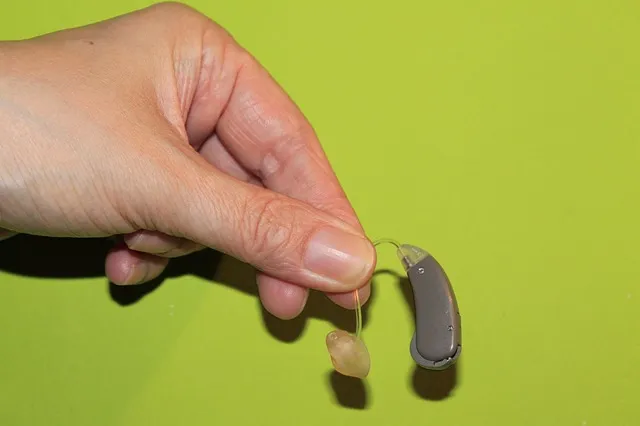Have you ever noticed how some days you’re constantly running to the bathroom, while other times you barely go? Maybe after chugging water during a workout or skipping your morning coffee. But what’s really controlling this?
Your body's urine production is not random—it’s carefully regulated by hormones, blood pressure, and even your diet. Understanding how is the amount of urine produced regulated can help you spot early signs of dehydration, kidney problems, or hormonal imbalances.
Let’s break it down in this article.
The Key Player: ADH and Its Role in Urine Control
Your body's ability to conserve or release water depends on antidiuretic hormone (ADH), produced by the pituitary gland in the brain. The pituitary gland releases ADH to directly manage urine output. Here’s how it works:
Low blood volume? ADH spikes, signaling kidneys to reabsorb water. Less urine.
Overhydrated? ADH decreases → Kidneysrelease more water → More urine output
- Dehydrated? ADH increases → Kidneys retain more water → Less urine output
Drink lots? ADH goes down. Kidneys let go of more. If you drink a lot, your body does not hold on to water.
But ADH does more than just respond to hydration—it adjusts urine output based on various situations:
Cold weather–ADH can rise. Tell the body to keep warm. In cold air, your body tries to save heat by making less pee.
Excessive sweating –ADH high to save water. Less goes out. If you sweat, your body holds water to stop you from drying out.
Salty meal –ADH helps stop the loss of much-needed wet. Eat salty food? Your body works to keep its water.
Nighttime –ADH goes up. We pee less while we sleep. When you sleep, your body keeps water, so you don't wake to go.
This hormone acts on kidney tubules, inserting “water channels” (aquaporins) to trap water in the bloodstream. Think of ADH as a strict water auditor—constantly adjusting urine volume to keep your body balanced.
What disrupts ADH?
Antidiuretic hormone (ADH) helps the body keep the right amount of water. It works by telling the kidneys how much water to keep. When ADH is out of sync, the body might keep too much water or lose too much. Several factors can throw off ADH levels:
High stress levels: Stress hormones interfere with ADH function.
Diuretics (water pills): These medications increase urine output by blocking water reabsorption.
High salt meals: Excess salt alters fluid balance and impacts ADH release.
Low blood sugar: Not enough sugar can disrupt the hormonal balance, including ADH regulation.
Alcoholic drinks: Suppresses ADH, leading to dehydration and more frequent urination.
Kidney disease: Impaired kidney function affects how ADH works.
Head trauma: A brain injury can impact ADH production.
Ignoring these factors can lead to dehydration, swelling, or even kidney damage over time.
How Blood Volume Affects Urine Production
Your blood pressure isn’t just about heart health—it directly impacts how much you pee.
High blood volume: Forces kidneys to filter more fluid, increasing urine output.
Low blood volume: Activates the renin-angiotensin system, reabsorbing sodium and water. Urine output drops.
This system works with ADH. For example, after a salty meal, blood volume rises. Kidneys respond by flushing excess sodium and water, making you pee more.
5 Surprising Factors That Change Your Urine Output
Urine output can change a lot based on what you eat, drink, and your environment. These factors can make you pee more or less by affecting how your kidneys work and how your body handles water.
Factor | Effect on Urine | Why It Happens | Why It Matters |
Caffeine | Increases | Blocks ADH, stops water reabsorption | Can lead to dehydration if overconsumed |
Sweating | Decreases | Less water left for kidneys to process | important for athletes or those in hot climates |
High-protein diet | Increases | Kidneys flush excess nitrogen | Can strain kidneys if intake is too high |
Cold weather | Increases | Blood shifts to the core, raising kidney filtration | More frequent urination in winter |
Painkillers (NSAIDs, opioids) | Varies | NSAIDs reduce blood flow to the kidneys; opioids block signals | Can impact hydration levels |
By understanding these factors, you can adjust your diet and lifestyle to maintain a healthy fluid balance.
How Your Body Balances Water
Every day, kidneys filter 180 liters of blood but produce only 1-2 liters of urine. This happens through three key processes:
Filtration: Removing waste and excess substances from blood.
Reabsorption: Pulling back 99% of water and nutrients needed by the body.
Secretion: Adding extra toxins to urine for elimination.
When you’re dehydrated, your kidneys prioritize water conservation. When overhydrated, they flush out excess fluid to maintain balance.
This delicate system keeps your electrolytes stable—a process that can be disrupted by diabetes, kidney disease, or hormonal imbalances.
When to See a Doctor
If you notice sudden changes in urine volume—especially with thirst, fatigue, or swelling—it could signal diabetes, kidney disease, or hormone imbalances. Look out for these warning signs:
Dark urine that smells strong: Could indicate dehydration or a urinary tract infection (UTI).
Pain or burning while urinating – A sign of UTI that needs medical attention.
Red or pink urine: This may suggest blood in urine, potentially due to kidney problems or an infection.
Frequent urination at night: This can indicate diabetes, kidney disease, or prostate issues.
Weak urine stream or difficulty urinating: Possible urinary blockage or prostate issue.
- Lower abdominal pain with urine changes – May suggest kidney or bladder issues.
Fever with painful urination – This can indicate a serious urinary tract or kidney infection.
If you experience any of these, consult a doctor—early detection can prevent complications.
Final Takeaway
Your kidneys and hormones work 24/7 to balance water, salts, and waste. Understanding how is the amount of urine produced regulated helps spot early signs of dehydration or kidney issues, adjust your water and salt intake for better hydration, and recognize when urine changes might signal a health problem.
If this helped you understand how your body controls urine, share it with someone who always wonders why coffee makes them pee so much! And if you notice unusual urine changes, don’t ignore them—stay informed, stay healthy.
अक्सर पूछे जाने वाले प्रश्नों
Why do I pee more at night as I age?
Aging reduces ADH production and weakens bladder muscles. Older adults often make more urine at night.
Can stress affect urine output?
Yes. Stress triggers adrenaline, which diverts blood from kidneys. Less filtration means less urine
Does lemon water make you pee more?
Citric acid acts as a mild diuretic. However, the effect is weaker than caffeine.
Why do some medications change urine color?
Drugs like rifampin (antibiotic) or phenazopyridine (UTI pain) break down into pigments excreted in urine.
Can lifting weights reduce urine production?
Temporarily. Intense exercise redirects blood to muscles, lowering kidney filtration.
Do sugary drinks increase urine output?
Only if blood sugar is high. Excess glucose spills into urine, pulling water with it.
Why does pregnancy cause frequent urination?
The growing uterus presses on the bladder. Hormones also increase kidney filtration rate.
लेखक





